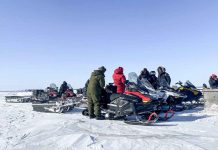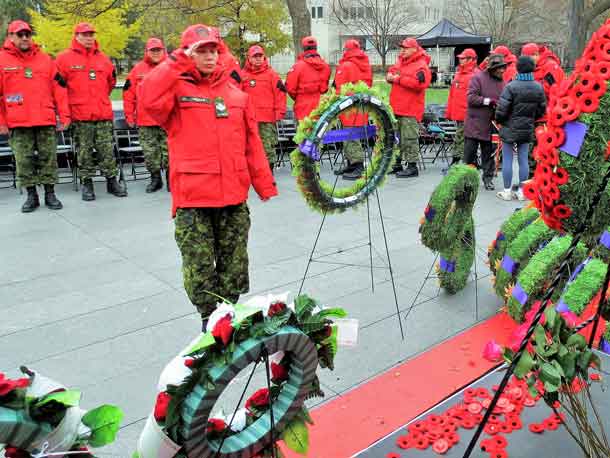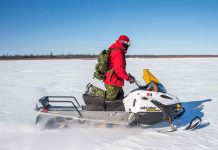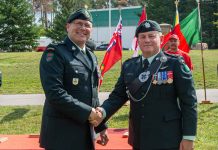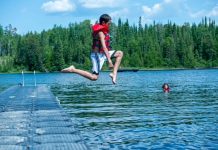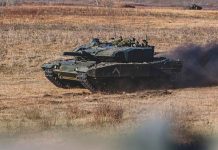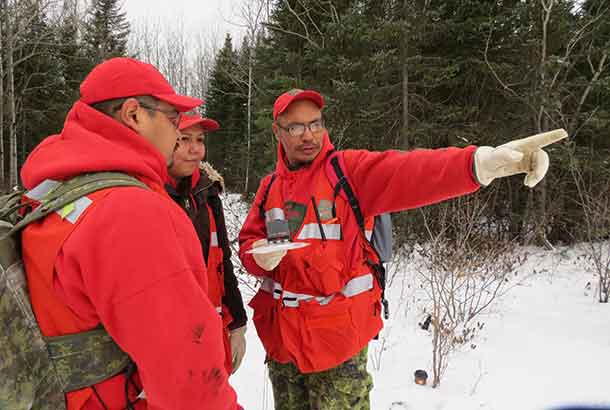
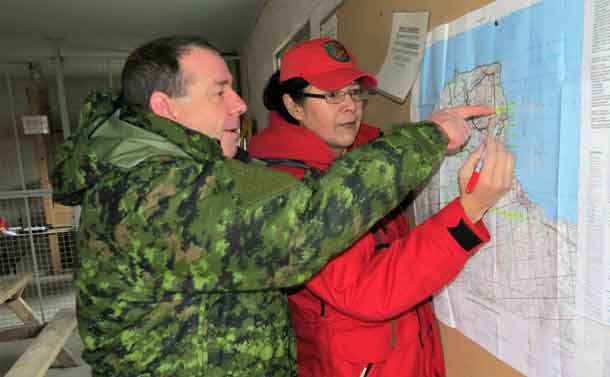
THUNDER BAY – The Canadian Rangers of 3rd Canadian Ranger Patrol Group are Canada’s military presence across the Far North of Ontario, an area larger than the size of France.
“We’re also the largest reserve unit in Ontario, with close to 600 active Rangers,” said Lieutenant-Colonel Matthew Richardson, 3 CRPG’s commanding officer. “We are three times the size of any reserve unit in the province. The other half of the unit is the Junior Canadian Ranger program, with close to 1,000 Junior Rangers.”
The Canadian Rangers are part-time army reservists and operate in 23 remote Cree, Oji-Cree, and Ojibway First Nations in Northern Ontario, 20 of which have no year-round road access. They are 98 per cent indigenous and 40 per cent are female. They are called on frequently to provide skilled assistance in emergencies such as searches, plane crashes, forest fires, and floods.
True citizen soldiers, they have received medals, awards, and commendations for rescuing missing persons, saving lives in several fires, and for serving their communities with distinction in times of crisis. They operate in some of the most challenging and potentially dangerous terrain in the world. Much of it is in the sub –Arctic and winter temperatures can plunge to -50C and colder.
They also mentor the Junior Canadian Rangers, a culturally appropriate youth program for boys and girls aged 12 to 18.

The Rangers are trained to use their traditional on-the-land skills and specialized local knowledge to serve their local communities.
“We are an indispensable community organization in our First Nations,” Colonel Richardson said. ”We’re indispensable because we save lives. We did 25 ground search and rescue operations last year and saved lives in every one. The Rangers have responded to forest fires, floods, and evacuations, including the tainted water crisis in Kashechewan in 2005 when we evacuated more than 800 people.”
When the Cree community of Attawapiskat faced a crisis last year after more than 100 young people tried to commit suicide in an eight-month period the Rangers provided a range of activities for many of the dispirited youth left in the troubled settlement during the spring goose hunt.
The Rangers’ training is provided by full-time instructors from the headquarters staff of 3 CRPG at CFB Borden. The instructors spend up to 120 days a year in the North, travelling to different First Nations to provide training. “The instructors are very special people who do a tremendous job,” Colonel Richardson said. “They spend as much as a third of their time away from their families.”
He also praised the other headquarters staff, who provide administrative support and arrange for equipment, clothing, food, and other items to get to the remote First Nations. “The staff do an amazing job on a daily basis,” he said.
Full time instructors also travel north to support the Junior Canadian Ranger program.
While the Rangers of 3 CRPG are little known in Southern Ontario they are highly respected across the top half of the province. They operate within an area known as Nishnawbe Aski Nation. Its Grand Chief, Alvin Fiddler, was impressed when he participated in a Ranger search and rescue exercise in Sachigo Lake First Nation.
“This was my first experience with the Rangers and they were impressive,” he said at the end of the exercise, “To see what they can do with the skills they have acquired from their army training is something to see. These were real life search scenarios that were part of the exercise (they involved a drug overdose, an overdue hunting party, and an overturned canoe) and they happen in our communities too often. The Ranger program allows our communities to respond in a way that meets their needs. I think it’s great.”
(Sergeant Peter Moon is the public affairs ranger for 3 CRPG.)

